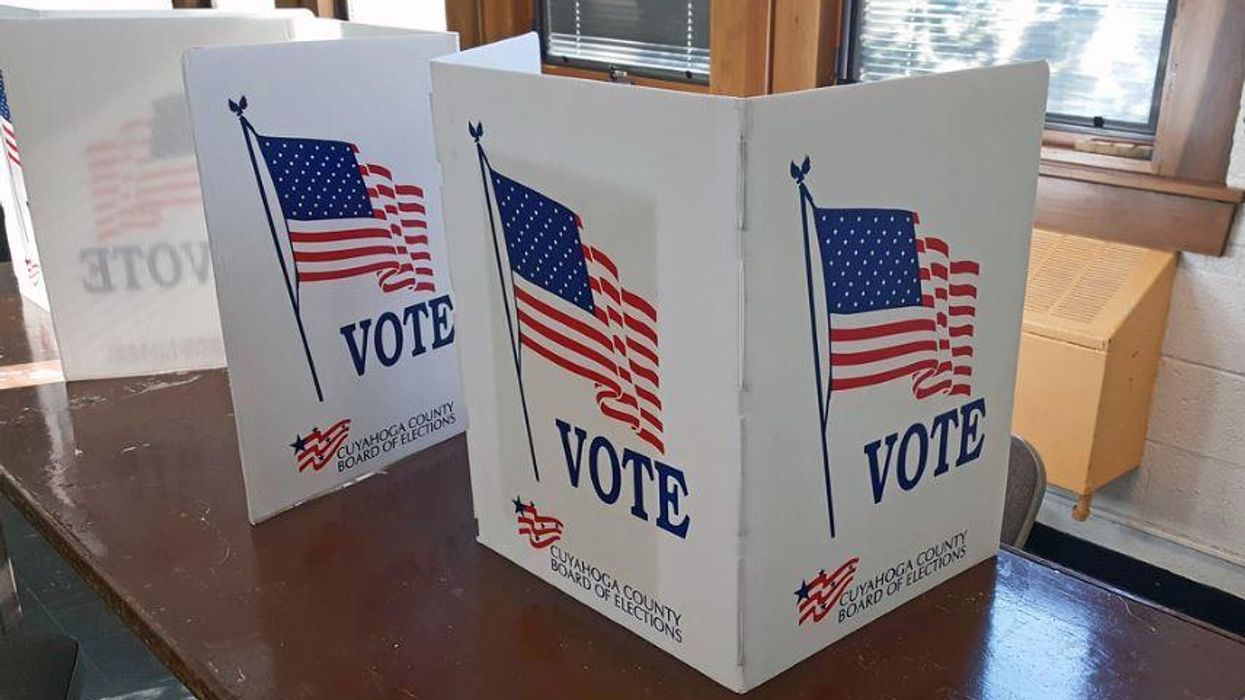
Historically, people who cannot read and write have faced discrimination in the voting booths of America. Before the passage of the Voting Rights Act in 1965, literacy tests were enacted as a way of disqualifying immigrants and the poor, who had less education, from casting a ballot. In the south, they were used to prevent Black people from registering to vote.
According to ProPublica, in 2022, around 48 million people in the United States struggle to read, about a fifth of the adult population. An analysis of voter turnout has found that in countries with lower literacy rates, voter turnout was lower as well.
“How the system is set up, it disenfranchises people,” voting rights advocate Olivia Coley-Pearson told ProPublica. Coley-Pearson is a city commissioner in Douglas, the county seat of Coffee County, Georgia. “It’s by design, I believe, because they want to maintain that power and that control.”
u201cOlivia Coley-Pearson offered help to voters who struggle to read. For taking on one of Americau2019s oldest forms of voter suppression, she got threats, a trip to jail and a reminder of the nationu2019s long legacy of weaponizing literacy. https://t.co/N9s6PdJPyvu201d— ProPublica (@ProPublica)
1663675146
Recent laws passed in the south have made it more difficult for people to assist those who have difficulty reading at the voting booth. In 2021, Georgia passed a law that limits who can return or touch a completed ballot. Florida has made it more difficult for volunteers to ask voters if they need assistance and Texas passed a law prohibiting voters’ assistants from answering questions or paraphrasing complicated language on the ballot.
Fortunately, portions of the Texas law have been struck down.
No one knows firsthand how hard it is for people with difficulty reading to vote in the south more than Coley-Pearson. She’s been charged twice in Coffee County for trying to help people vote. “We’re a rural community, there are racial issues, educational issues, employment issues,” she told ProPublica.
“Most of the people who have trouble reading, writing and understanding, they’re not going to go vote. If you have a low voter turnout, that’s some of the reason why,” she told ProPublica.
In 2012, the chairman of Coffee County’s board of elections filed a complaint against Coley-Pearson and three other residents, alleging that they’d assisted voters who didn’t legally qualify for help.
“If someone asks me for help, I feel an obligation to try to assist if I could,” she testified at a 2016 hearing. “Sometimes things are done to try to maybe dis-encourage, or whatever, other people from voting, and I don’t feel like that is fair.”
A local district attorney’s office charged her with two felonies for signing a form that gave a false reason for why a voter needed assistance and for improperly assisting a voter. According to BuzzFeed News, there were no allegations that Coley-Pearson had told anyone who to vote for or pressed any buttons on the voting machine for those she assisted.
“This is supposed to cause fear in those who would dare stand up for themselves,” Nefertara Clark, Coley-Pearson’s attorney, said, according to BuzzFeed News.
After six years of having the felony charges hanging over her, in 2018, the trial ended in a hung jury. She was tried again and the new jury acquitted her of all charges. “Next to losing my son, the most horrible thing I’ve experienced in my life,” Coley-Pearson told 11 Alive News.
In October 2020, while assisting someone with low literacy skills vote in the presidential election, she was barred from returning to the polls for allegedly touching a voting machine. Coley-Pearson said she never touched the machine.
The county’s election supervisor, Misty Martin, called the police on Coley-Pearson and they issued a trespass warning barring her from the polls indefinitely. Later that morning, when she returned with another voter, she was arrested and charged with trespassing.
A state judge dropped the charge earlier this year if Coley-Pearson agreed to follow election law. “There was no evidence of any crime here,” Coley-Pearson told ProPublica. “It feels like you’re fighting a losing battle.”
Even though Coley-Pearson has been victorious in court, her supporters tell her they’re now afraid to vote because of her struggles. Unfortunately, these are the people who need their voices heard the most. “I say, ‘That’s exactly why you need to vote so we can stop stuff like that,'” she told ProPublica.
